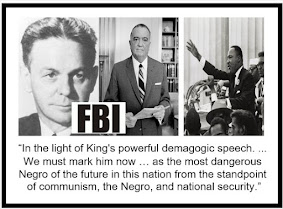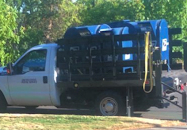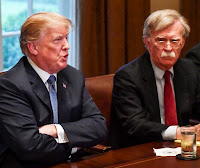Honest patriots seek the truth, all of it - warts and all. That is learning. The alternative is propaganda.In the wake of President Trump’s embrace of “patriotic history” at the National Archives on Thursday, I rise to speak in favor of the discipline I taught, studied, researched, and wrote about for decades.
I also rise to oppose, categorically the debauched definition of history he espoused in that hallowed national space within sight of the Constitution, Bill of Rights, and Declaration of Independence.
Back in the day, before the internet, I used to regularly listen to shortwave radio to find out what was happening in the world. Back in that day one of the loudest voices on those bands was Radio Moscow. I can still hear the baritone voices giving the English language version of the Soviet Union’s story.
Part of that story was the sovereign belief that the USSR had never been wrong, had always acted honorably, and that life under the Soviet Union had been uninterrupted rise to greatness. In this telling, there were no gulags, no forced labor, no liquidation of the kulaks, no pact with the Nazis. In fact by the 1980s Stalin had largely disappeared from the narrative. It was all sanitized, rosy, varnished, and a lie.
Since the advent of the internet, and my discovery of email, my signature has included the phrase, “History-the way today got here.” My history career rested on the truth that history is real, knowable, and valuable. The past is our mirror. In it, we can see ourselves for who we are, if we take the time to wipe the fog from that mirror. Something else promotes a clearer vision.
As Reinhold Niebuhr warned about sanitized national histories, such collective, willful ignorance destroys all it touches.
To say, as President Trump suggests, that the history of the United States is nothing but the triumph of freedom, is willful ignorance. Our national story is both 1776 and 1619, both “all men are created equal” and the “peculiar institution”. Both are true, not just one or the other.
Two of the founders carved on Mount Rushmore--beneath which the President stood in July--owned, bought, and sold human beings. The Confederacy’s leaders, whose statues the President deems sacred, committed treason against the United States (as actually defined by the Constitution) to preserve slavery.
The Constitution, which the President used as a prop the other day, condoned slavery.
In fact, condoning slavery made our national government possible. Abraham Lincoln, another face on that South Dakota mountain, was killed for his opposition to slavery. And Theodore Roosevelt lunched with Booker T. Washington at the White House—just once. Then came the backlash in the press. These are hard truths; nevertheless they are true.
History happens. People propel the events we read about and study; but people are not perfect. Therefore, the people’s story—our American history--will be rife with our imperfections. Unless we anesthetize ourselves into distortion, we have no choice but to address those imperfections staring at us in history’s mirror.
My grandfathers were both immigrants from the Netherlands—draft dodgers. Their trans-Atlantic passage allowed them to voluntarily dodge the law. They came to Paterson, New Jersey, and became good citizens of the United States. That is one thread in the American story, one we enjoy celebrating, and rightfully so.
But for millions of others, the passage across the Atlantic was not voluntary. A “person held to Service or Labour in one State” (a slave), to quote the Constitution’s Article IV, produced the fibers that were woven into the cloth produced in the mills Alexander Hamilton (of recent Broadway fame) financed, and Charles L’Enfant (who gave us Washington, D.C.’s street pattern) designed below the Great Falls of the Passaic River. That cloth, that came from fibers cultivated and harvested by slave labor, made Paterson a place that, even after slavery had been abolished, attracted immigrants like my grandfathers. Paterson’s prosperity was made possible by hardworking laborers—both slave and free. That is the unvarnished American story, whether the President likes it or not.
If we are to “Proclaim Liberty Throughout the Land” -- words cast on the Liberty Bell -- we need the truth; only the truth can make us free. A history of the United States that highlights Jackie Robinson but ignores Jim Crow, is just a story, not history. It would be an American version of the Radio Moscow version of the Soviet Union—fictionalized, sanitized, a lie.
In 2008, I had the privilege to teach an unvarnished version of American history to a group of Russian college students. When the course ended, I asked the students to tell me the most interesting, or important, thing they learned. I will never forget one student’s response. “I learned that it is okay to criticize your own country.” I kept that answer on my office desk for years. A Russian student grasped a truth that eludes our President; true patriots are honest patriots. Honest patriots seek the truth, all of it—warts and all. That is learning. The alternative is propaganda.
“You shall know that truth, and the truth shall make you free.” That’s good scholarship and the foundation of good citizenship. In the United States that means we always will see the interlocking of 1776, and 1619, and 1865, and today.
Unlike reality television or old westerns, history isn’t a simplistic story with stock characters and a scripted plot line.
History, the discipline I love, is complicated when it is real. History (a record of troubles and hopes) is the way today got here. That’s the simple truth. History education does not create the troubles, it studies them.











%20-%20Google%20Chrome.jpg)































